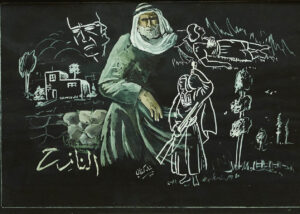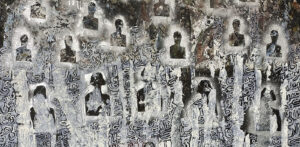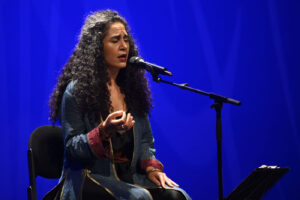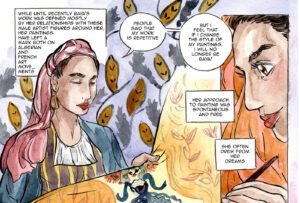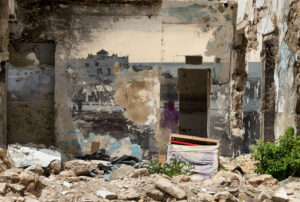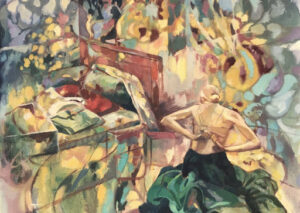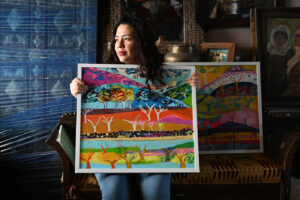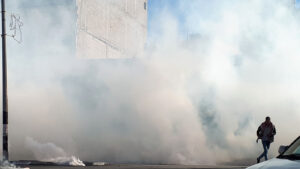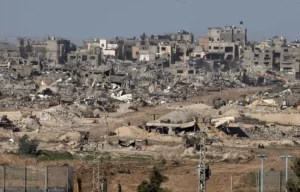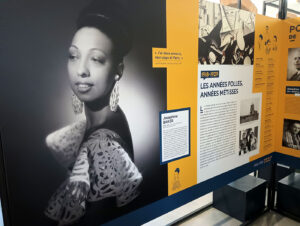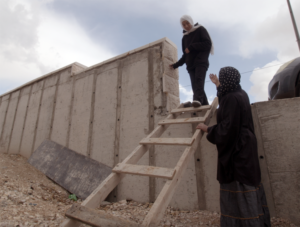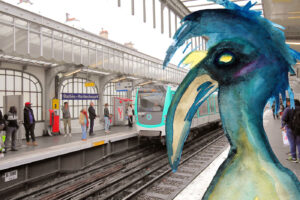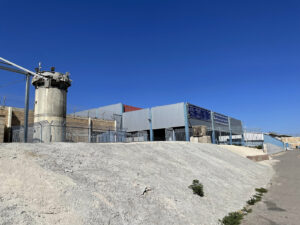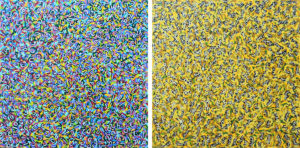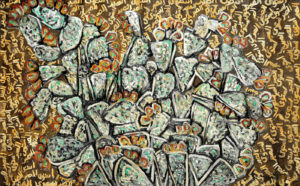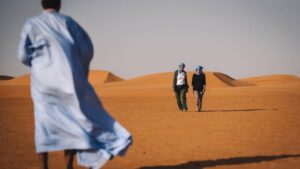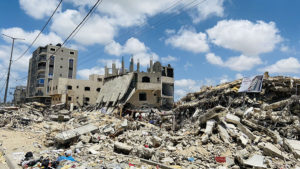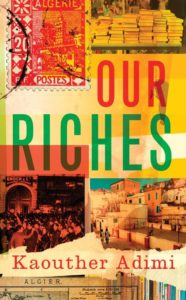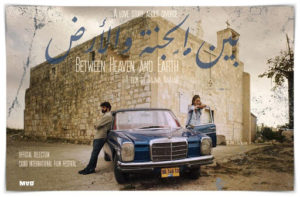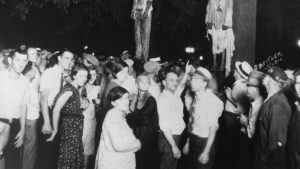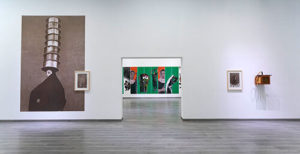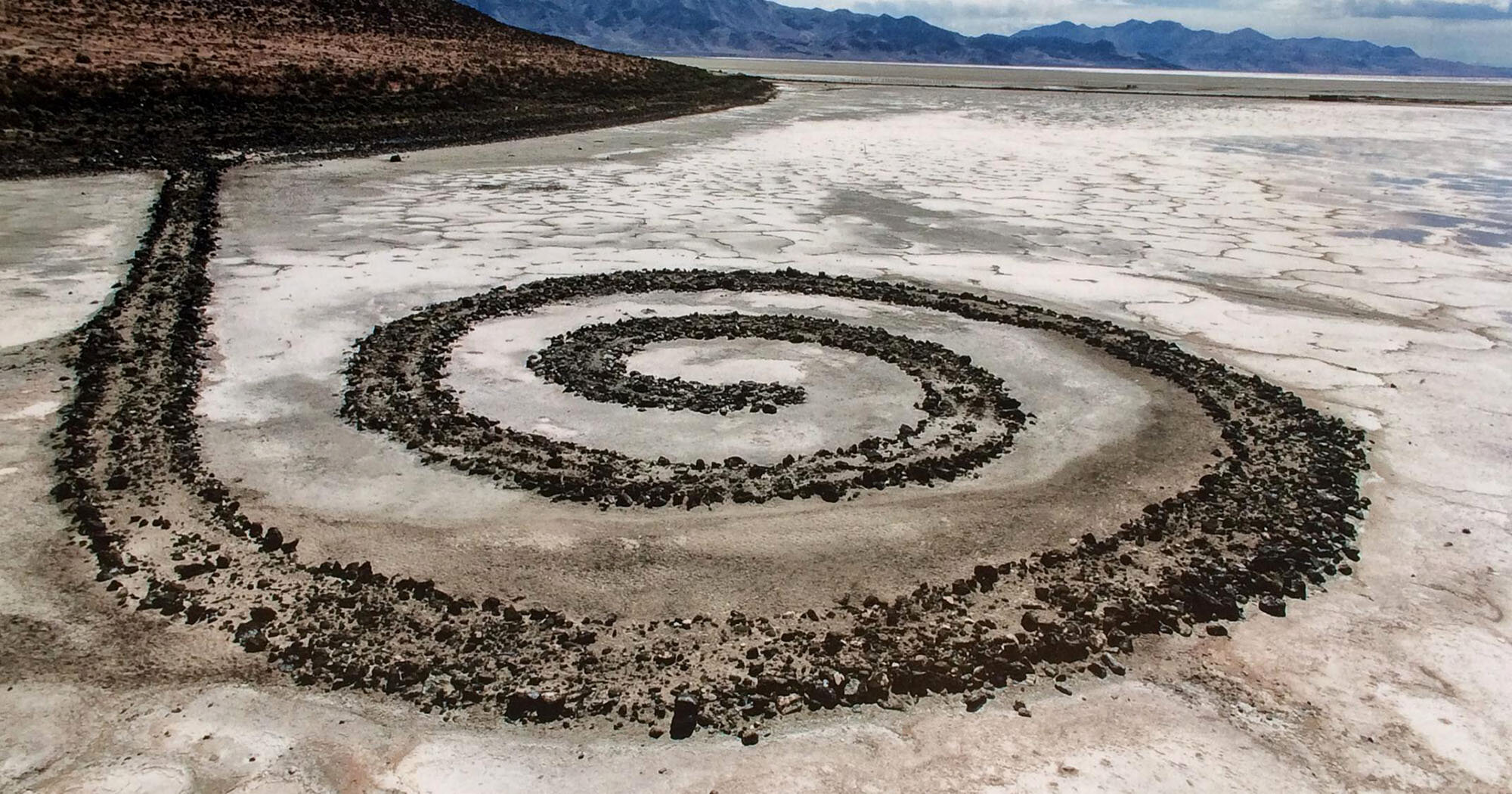
The Dance of the Deep-Blue Scorpion, a novel by Akram Musallam
Translated by Sawad Hussain
Seagull Books (Oct 2021)
ISBN 9780857428936
khulud khamis
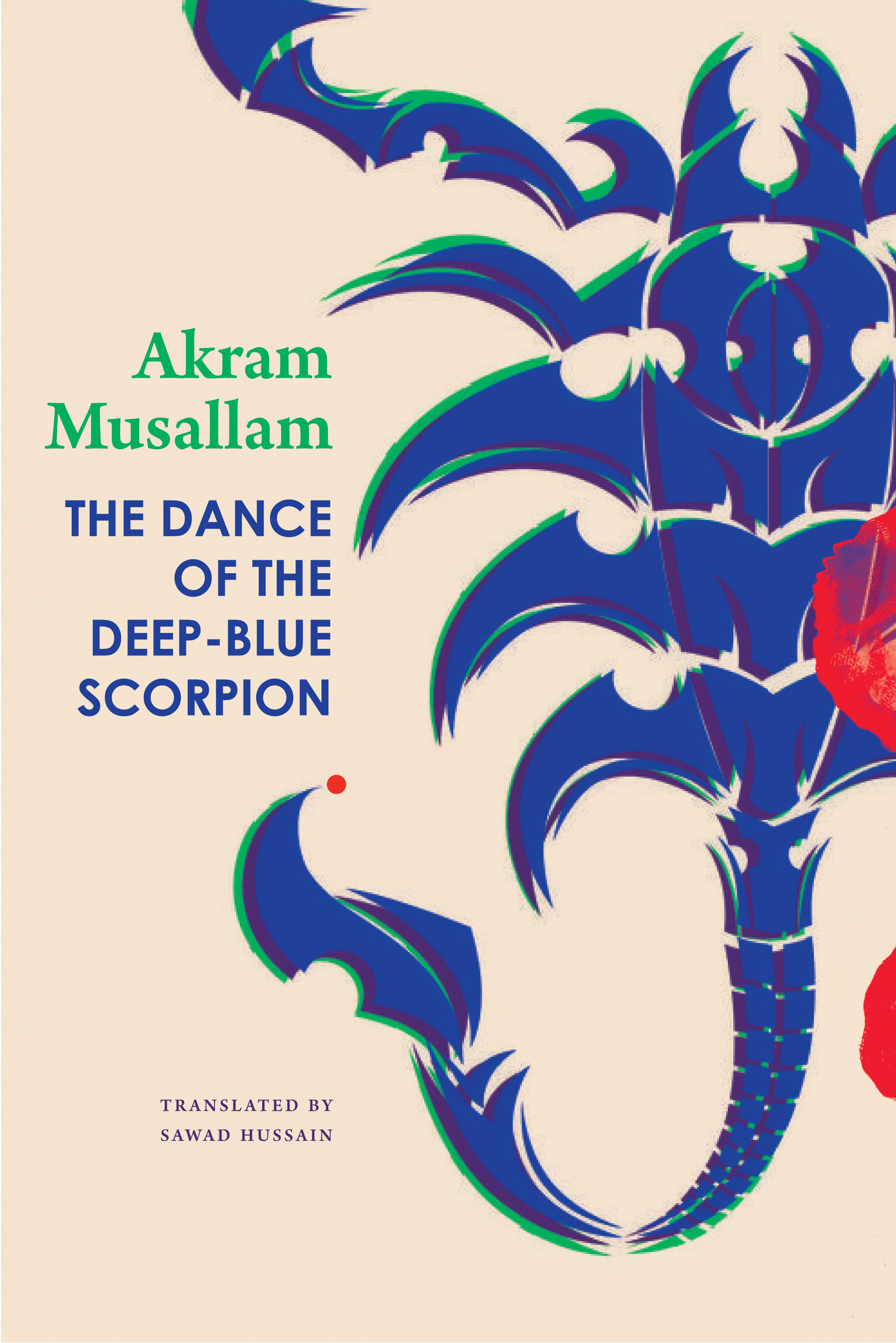
Akram Musallam’s novel, The Dance of the Deep-Blue Scorpion, originally published in Arabic in 2008, is a meditation on loss, absence, and memory. How can we know for sure that something we lost had actually existed in reality and is not merely a figment of our dreams or imagination [cf. “That in Aleppo once…,” the astonishing 1943 short story by Vladimir Nabokov —Ed.]? Does the memory of a place, a person, an experience, and the emptiness left by their absence mean they existed? Through an intricately woven and multi-layered narrative, where content and form are closely interconnected in a spiraling structure, Musallam asks these questions without offering any answers. If anything, by the end of the book we are thrown right back to the beginning by the force of its spiraling form and, like the characters of the stories told by the narrator, are left in desperate search to fill that emptiness left by loss.
The novel opens with a memory: a dream-like chapter, an encounter between the narrator, then a teenage boy, and a girl with a freshly-tattooed scorpion on her back. They meet in the dance hall where the narrator works, and the girl flies back to Paris the next day, vanishing from his life. From the outset, the narrator is not quite reliable, as he is not sure if the encounter with the girl was real or if he had dreamt her, questioning his own memory of it at the end of the first chapter: “Isn’t this a novel-esque dream or a dream of a novel?” Later in the book, the narrator circles back to the theme of dreams, through the character of his aunt, “the dream-lady,” who interprets somnolent imaginings.
We then jump in time and meet the nameless narrator, a journalist and an aspiring writer, who finds an unusual place for contemplation: an empty space in a parking lot, where he rents a spot and sits in solitude to think about his life and about writing his novel. He weaves stories, smoothly moving from one to the next, introducing characters who are reflections of one another, a fact reinforced by images of mirrors throughout the novel. In every character we encounter, there is a loss of something essential, which is strongly felt by a concrete presence of the absence left by the loss.
Four of the characters in these stories are described in the same exact way, as each of them tries to reach something unattainable: “He kept on trying and trying with a peculiar stubbornness until, overcome with fatigue, until he dripped sweat, he fell down, flung onto his back, moving his head and limbs with a desperate slowness, movements almost seemingly mechanical, as if they were his last.” This sentence describes the scorpion, trying to climb onto the outlined body on the mirror, the narrator’s father as he tries to scratch the emptiness left by his amputated leg, the tenant of a building trying to climb through the emptiness left by stairs that are no longer there, and a Palestinian born in Iraq to refugees, who begs the narrator to take him back with him to Palestine. They are all desperately trying to reach something that has been irrevocably lost, leaving them with a painful absence that will always remind them of that loss.
The narrator himself has also lost something precious, and that is the beautiful memory of the place of his encounter with the girl with the scorpion tattoo. The place, a hotel where the narrator used to work, was bombed years later, killing thirty people. Simultaneously, he is aware of this yet refuses to acknowledge it, changing the place — in the novel he is writing — to a dance hall to keep the memory untainted, though he knows it is futile.
The book is also a contemplation on the act of writing itself. Throughout, comments are scattered on the craft of writing, of making up plots, changing narratives, and trying to capture meaning. Here, again, it is connected to the emptiness experienced by many of the novel’s characters, as the narrator wonders whether writing itself isn’t an act of trying to touch empty spaces, to scratch the amputated limb: “Isn’t writing, in some way, the scratching of something that exists and doesn’t exist at the same time? Something we know, we feel, we try to touch, to grasp, to silence? Isn’t writing in some way a scorpion trying and trying to scramble up a mirror, to stop at a point, on some image, in some mind? Isn’t that writing?”
Born in 1972 in Talfit, near Nablus, Palestine, Akram Musallam graduated in Arabic literature from Bir Zeit University. He is a journalist and reporter for the Ramallah daily Al-Ayyam and has published two novels, Hawâjis al-Iskandar (The Torments of Alexander, 2003) and The Dance of the Deep-Blue Scorpion, which won the A.M. Qattan Foundation award. He also served as the series editor for the critical edition of The Diaries of Khalil al-Sakakînî, the prominent Palestinian man of letters who fled Qatamon with his family in 1948 to become refugees in Egypt.
In one way or another, most Palestinian literature deals with collective issues of the Palestinian people, the most prominent of them the loss of home and our collective memory of the Nakba. The collective ultimately almost always finds its way into the story, even in works of literature that try to forsake it and instead focus on issues that are either more personal or universal. In The Dance of the Deep-Blue Scorpion, Musallam reflects this tension by keeping the wider political context subtly in the background, as his narrator notes: “If you were searching for the occupation, it’s in the background, and I can bring it to the foreground in everything, everything. I try to catch my breath a bit away from the occupation.” But even this attempt at keeping the collective in the background ultimately fails: “In a war like this, even places lose their neutrality, revolting against being mere objects, becoming stakeholders, taking part in the narration, almost stretching out their tongues and speaking, even reaching out their hands to scribble on my manuscript!” The result is simultaneously a novel that reflects some of the collective themes of the Palestinians — the collective loss, absence, and memory in this case — as well as a novel that expands beyond these limits and opens up to meanings that are universal and can be related to by every reader.
Sawad Hussain’s translation of the novel is excellent; by the middle of the book the reader almost forgets she is reading a translated work. It is worth noting, however, that the original title in Arabic is Sirat al-‘akrab alladhi yatasabbab ‘araqan, which literally translates to The Tale of the Scorpion that Dripped with Sweat. It is understandable the original title was changed, as the literal translation does not work well in English. However, the Arabic title is of significance to the spiraling form of the narrative. The book ends with a scientific fact about the inability of scorpions to sweat, which throws the reader back to the Arabic title and the first chapter, where the scorpion “tried and tried with a peculiar stubbornness, scrambling upwards, only to slide back down until, overcome with fatigue, until it dripped sweat,” undermining the very foundation the whole narrative is built on, and again questioning the reliability of the narrator. We are left wondering — just like the narrator — whether that very first scene was in fact a reality, or only a dream dreamt up by him. It is also not clear whether this last sentence is written by the narrator, referring to himself in the third person, or whether Musallam himself — like a magician who has just executed the perfect magic trick — makes an appearance, mocking his narrator. We, the readers, are drawn back in, enticed to start reading the novel all over again and, possibly, uncover additional layers and connections missed in the first reading. But ultimately, just like the nameless narrator, we are left with the question: “Isn’t this a novel-esque dream or a dream of a novel?”



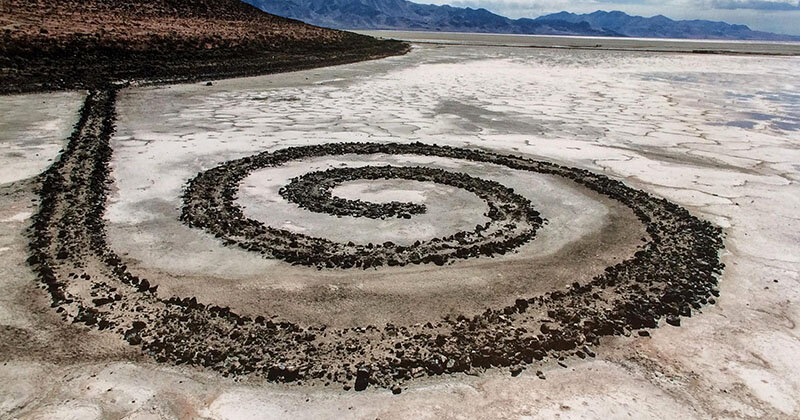
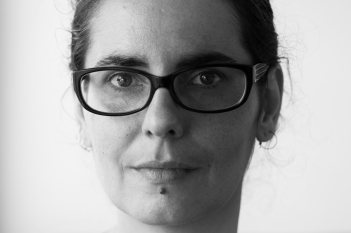

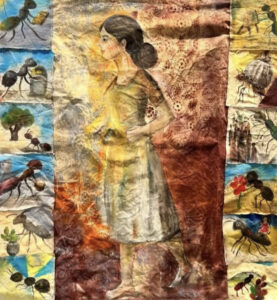
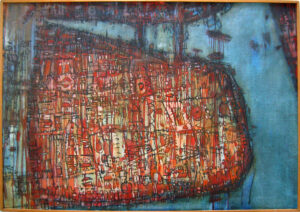


![Ali Cherri’s show at Marseille’s [mac] Is Watching You](https://themarkaz.org/wp-content/uploads/2025/09/Ali-Cherri-22Les-Veilleurs22-at-the-mac-Musee-dart-contemporain-de-Marseille-photo-Gregoire-Edouard-Ville-de-Marseille-300x200.jpg)




